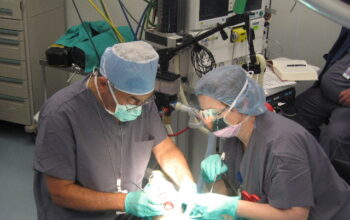In recent years, there has been growing interest in the role of probiotics in managing allergies and asthma. Probiotics, often referred to as “good bacteria,” are known for their positive effects on gut health. However, emerging research suggests that these beneficial microorganisms may also play a significant role in modulating immune responses and reducing the risk of allergies and asthma. In this blog post, we will explore the potential connection between probiotics, allergies, and asthma, and delve into the latest scientific findings.
Understanding Allergies and Asthma
Before we delve into the relationship between probiotics and allergies/asthma, let’s briefly understand these conditions. Allergies occur when the immune system overreacts to harmless substances like pollen, dust mites, or certain foods. Common symptoms include sneezing, itching, and watery eyes. On the other hand, asthma is a chronic respiratory condition characterized by inflammation and narrowing of the airways, leading to breathing difficulties, wheezing, and coughing.
The Gut-Lung Axis
Research has revealed a strong connection between the gut and the lungs, known as the “gut-lung axis.” The gut microbiota, which consists of trillions of bacteria residing in our digestive system, plays a crucial role in maintaining a balanced immune response. Imbalances in the gut microbiota have been linked to various health issues, including allergies and asthma. Probiotics, when consumed, can help restore this microbial balance, thus potentially impacting allergic and asthmatic conditions.
Probiotics and Allergies
Several studies have investigated the effects of probiotics on allergies, particularly in children. A systematic review published in the Journal of Allergy and Clinical Immunology found that early probiotics in infants reduced the risk of developing allergic diseases such as eczema and allergic rhinitis. Probiotics were also found to be beneficial in reducing the severity of symptoms in children already diagnosed with allergies. Although more research is needed, these findings suggest a promising potential for probiotics in managing allergies.
Probiotics and Asthma
In the case of asthma, the evidence regarding the effectiveness of probiotics is still evolving. However, some studies have shown positive outcomes. For instance, a randomized controlled trial published in the British Journal of Nutrition found that probiotics in pregnant women and their infants reduced the incidence of asthma and wheezing in children. Another study published in the European Journal of Clinical Nutrition indicated that certain probiotic strains improved lung function in adults with asthma. These studies indicate that probiotics may have a modulatory effect on the immune system, potentially reducing the risk and severity of asthma symptoms.
Mechanisms of Action
How do probiotics exert their beneficial effects on allergies and asthma? Although the exact mechanisms are not fully understood, researchers propose several hypotheses. One theory suggests that probiotics can influence the production of immune cells and inflammatory mediators, thereby modulating the immune response and reducing allergic reactions. Another theory suggests that probiotics can enhance the production of short-chain fatty acids, which have anti-inflammatory properties and can support a healthy immune system. Additionally, probiotics may strengthen the gut barrier, preventing the passage of allergens into the bloodstream and reducing allergic responses.

Choosing the Right Probiotics
Different strains of bacteria have distinct effects on the immune system, so it’s crucial to select strains that have been specifically studied for their benefits in allergies and asthma. Lactobacillus and Bifidobacterium strains are among the most commonly studied probiotics in this context. Additionally, probiotics are available in various forms, including capsules, powders, and fermented foods.
Conclusion
While the research on probiotics for allergies and asthma is still emerging, there is growing evidence suggesting a potential link between probiotics and reduced risk and severity of these conditions. Probiotics offer a promising avenue for modulating immune responses, restoring gut microbiota balance, and potentially alleviating symptoms associated with allergies and asthma. For more information or to read all about gut health pills, check out their page to find more.
As with any dietary intervention, it’s important to consult with healthcare professionals and seek evidence-based recommendations tailored to individual circumstances. With further research, we can unlock the full potential of probiotics as a complementary approach to managing allergies and asthma, improving the lives of millions affected by these conditions.





